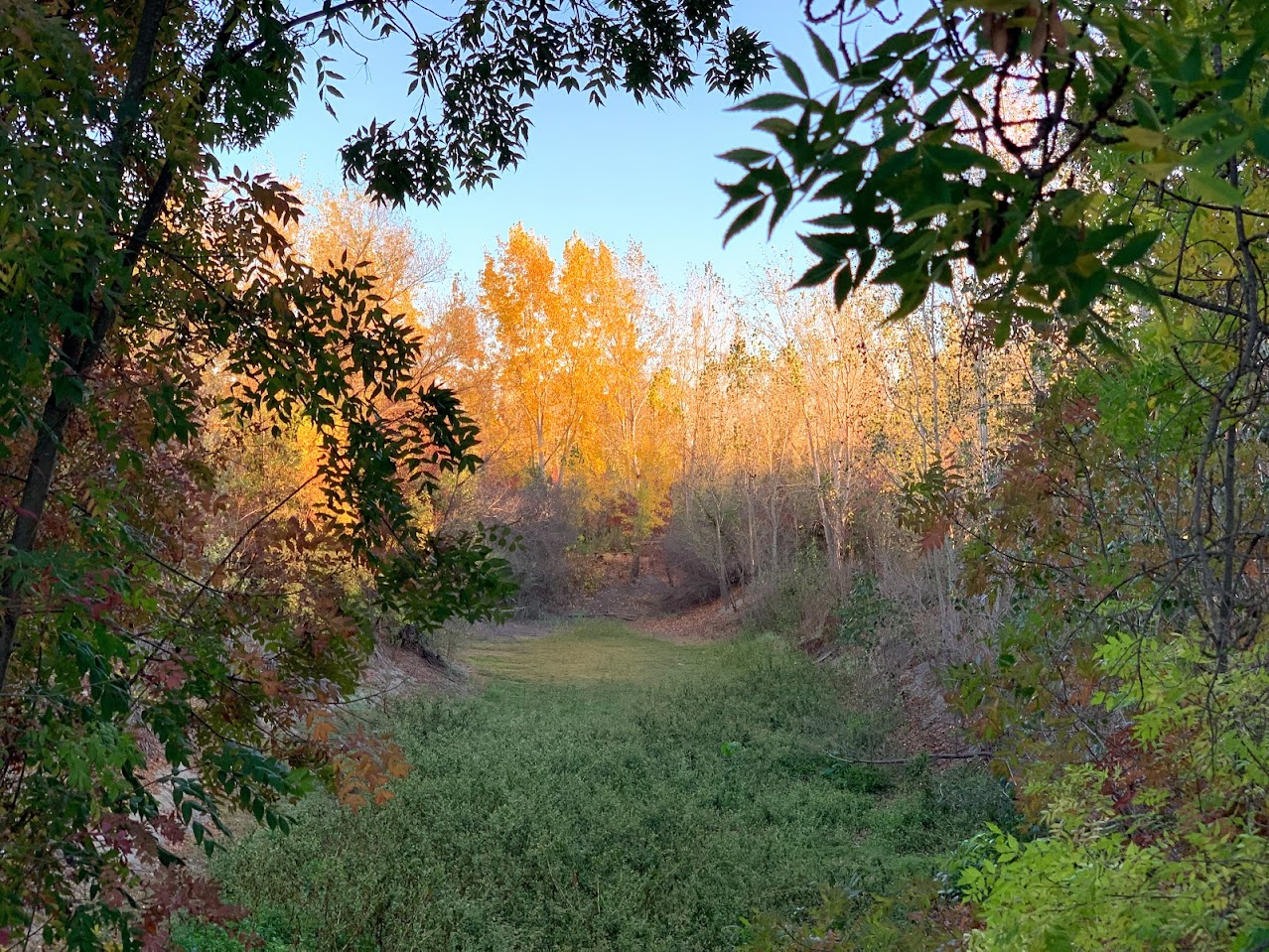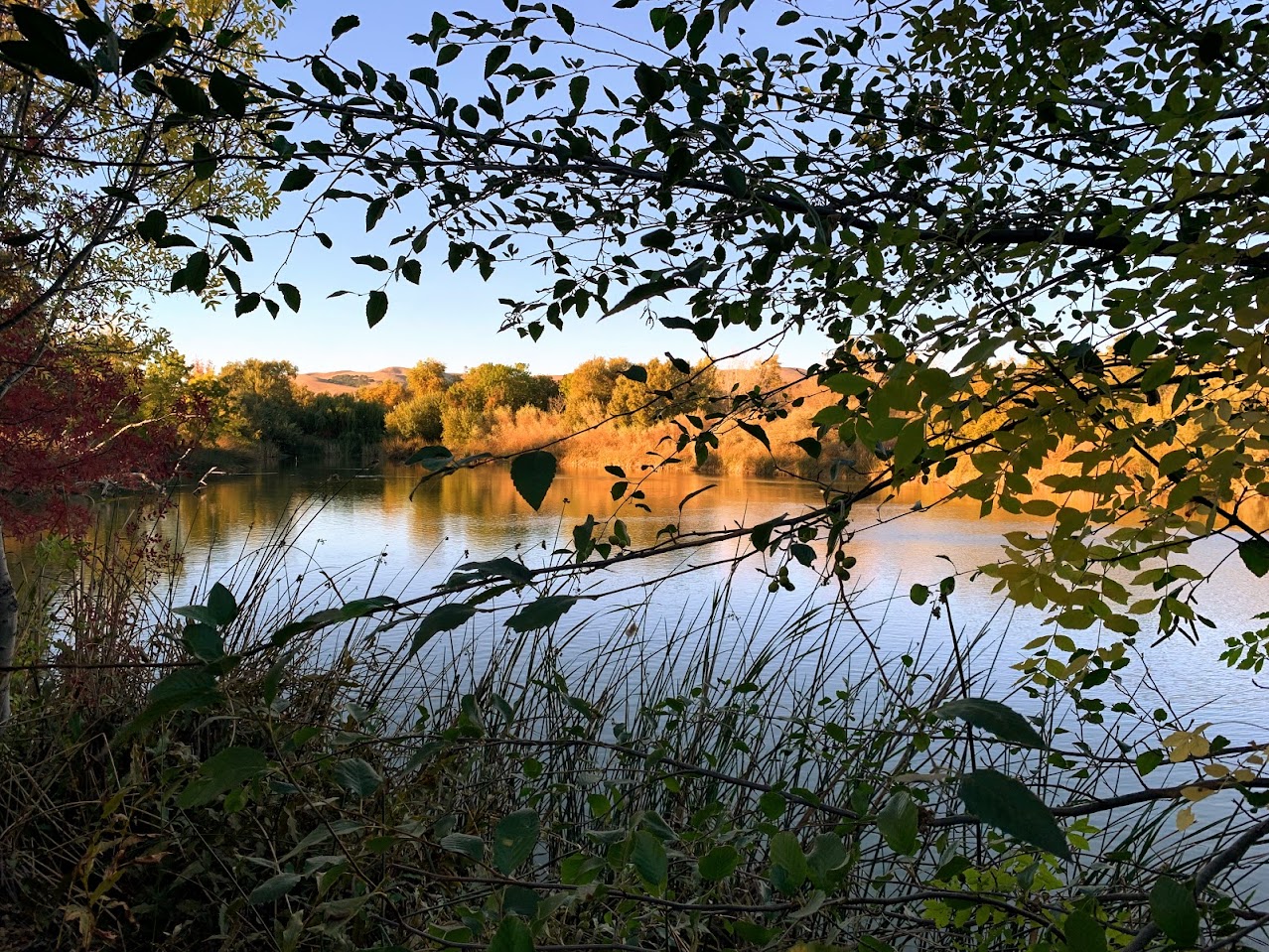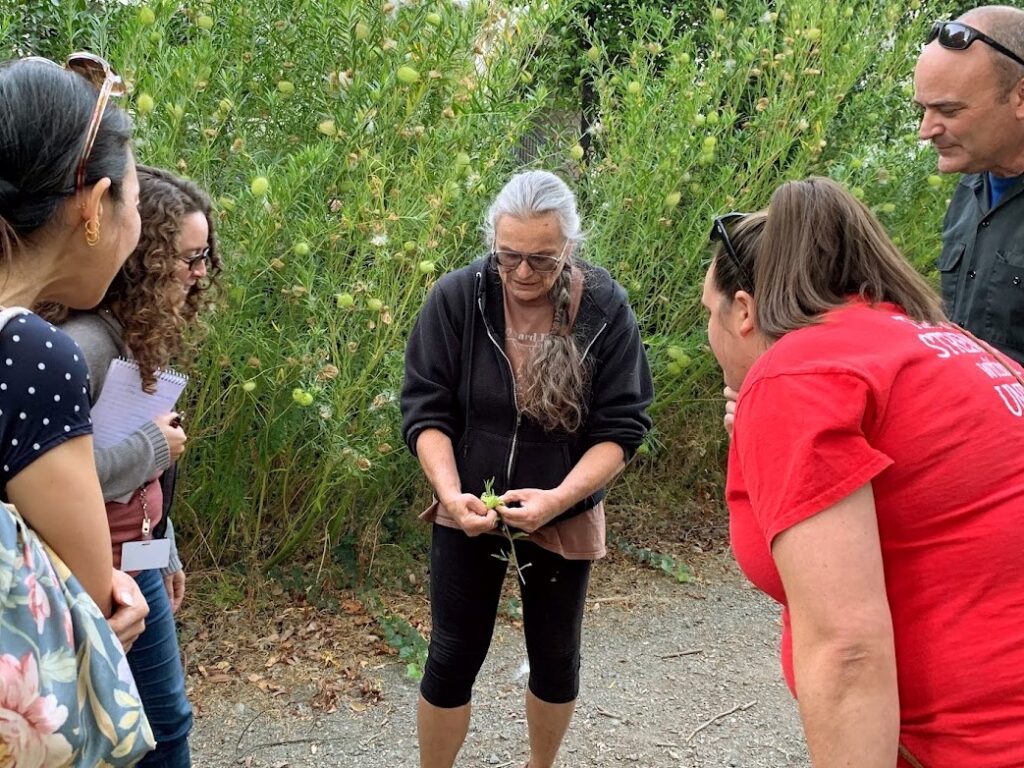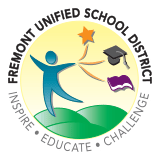Eco-Friendly: FUSD Launches Environmental Professional Development Series
Building students’ environmental awareness is an important focus for Fremont Unified School District.
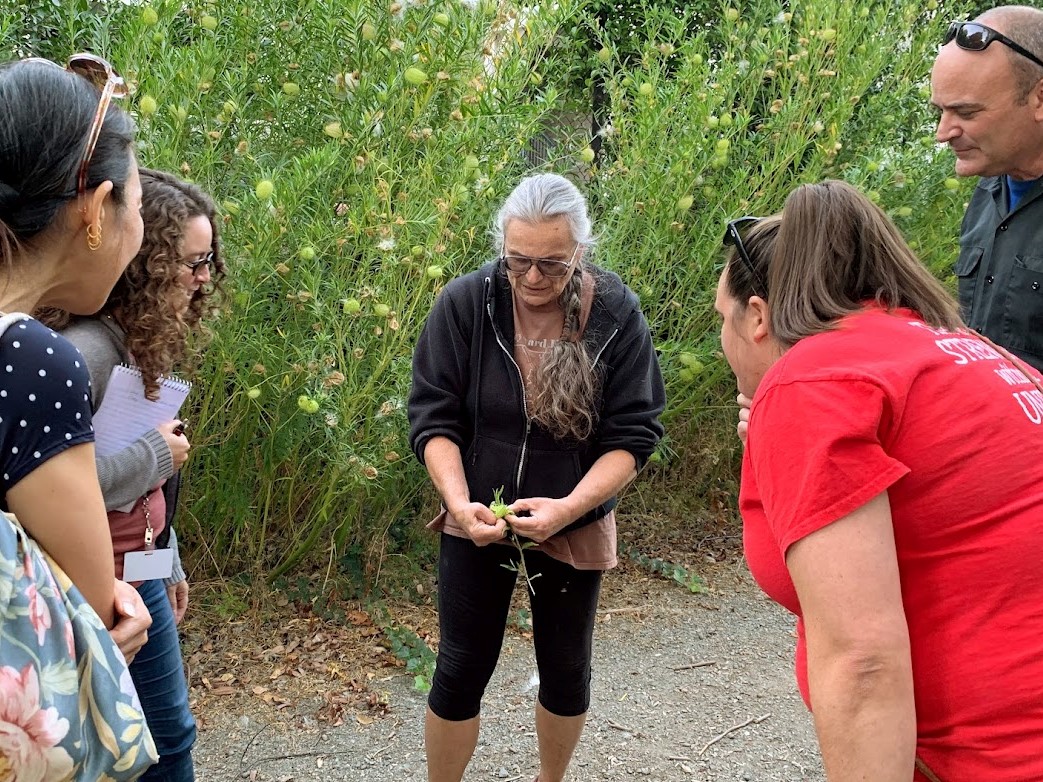
Dr. Joyce Blueford, Board President of Fremont’s Math/Science Nucleus shows a seed pod during a walk around Tule Ponds at Tyson's Lagoon for an EEPD session.
“One of our responsibilities as educators is preparing students for the challenges and opportunities of the future,” said Superintendent CJ Cammack. “Our Board of Education recognized that in the 21st century, this includes ensuring our graduating students are climate literate.”
The Board of Education approved two resolutions outlining these goals: in May 2021, the Board approved Resolution No. 030-2021, which declared FUSD’s commitment to educating students on climate change and climate solutions, and in February 2022 it approved “The Roosevelt Resolution,” which highlighted the importance of educational opportunities that promote environmental stewardship.
“The District is expanding the information, support and resources we offer our outstanding educators so they can continue to deliver high-quality instruction that is responsive to our students’ needs and prepares them for the future,” said Cammack.
This year the District’s Curriculum and Instruction (C&I) Department introduced a new support for teachers in this effort: its Environmental Education Professional Development (EEPD) training series. Sessions are open to any FUSD educator who wants help or professional partnership in adding an environmental focus to their instruction.
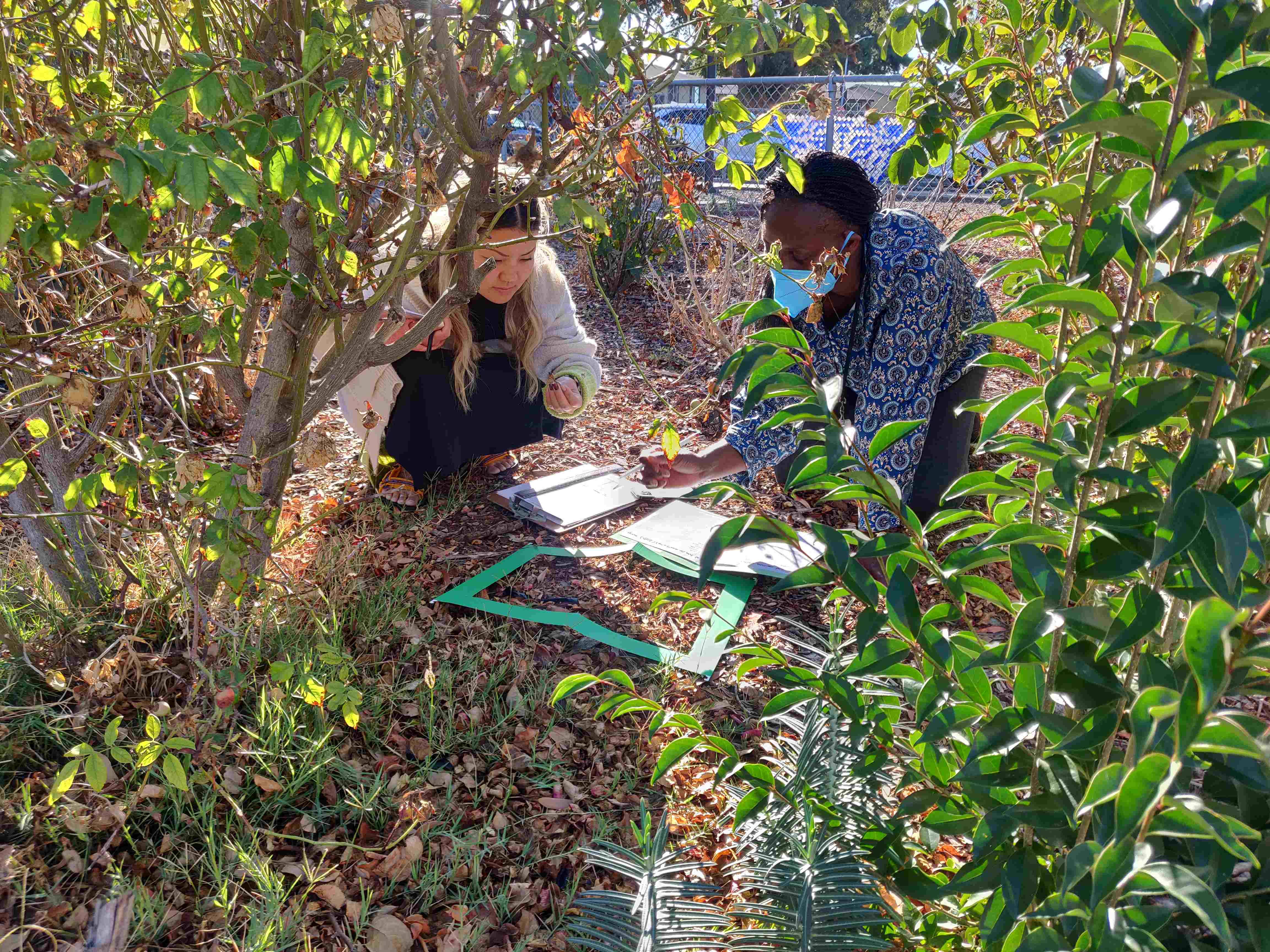
Attendees at "Connecting Students to Nature" practice identifying biotic and abiotic items in a quadrant on the grounds of Cabrillo Elementary.
An EEPD session, “Connecting Students to Nature," was held in September at Cabrillo Elementary. Attendees discussed and explored class management practices to help teachers take students outdoors for instruction, whether or not the lessons deal with environmental topics.
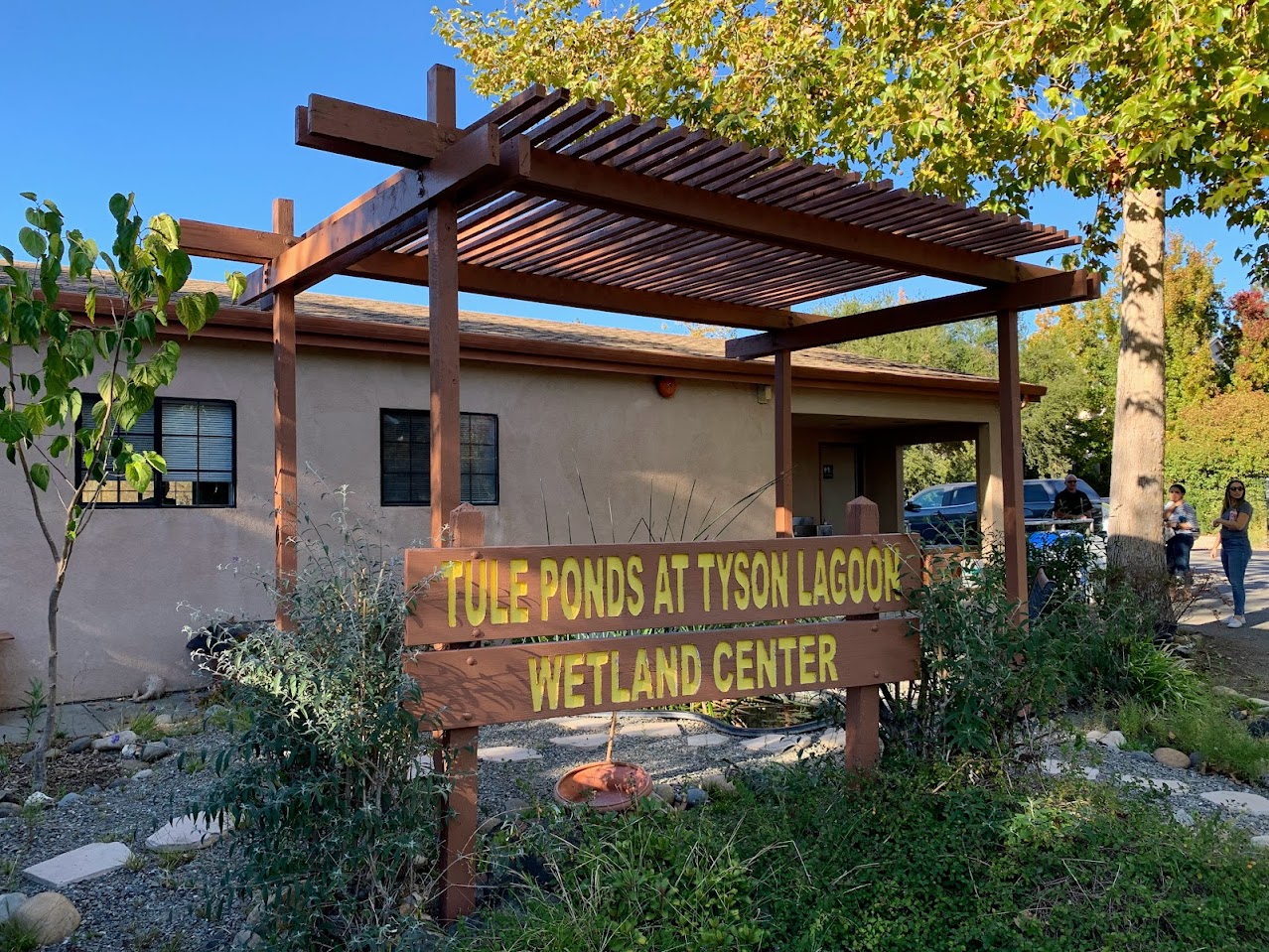
Tule Ponds at Tyson's Lagoon
A value C&I brings into its professional development offerings is providing participants an opportunity to engage in learning activities that they can enjoy, and then incorporate in their practice. For the EEPD session on connecting students to nature, this was achieved by hosting activities outdoors to help educators build their own connection to nature.
In October, an EEPD session was held at Tule Ponds at Tyson's Lagoon, a popular field trip destination for FUSD students for many years.
Dr. Joyce Blueford, Board President of Fremont’s Math/Science Nucleus tells attendees about Fremont's climate past through its rich geographic history during the “Introduction to Climate Literacy and Action” EEPD session.
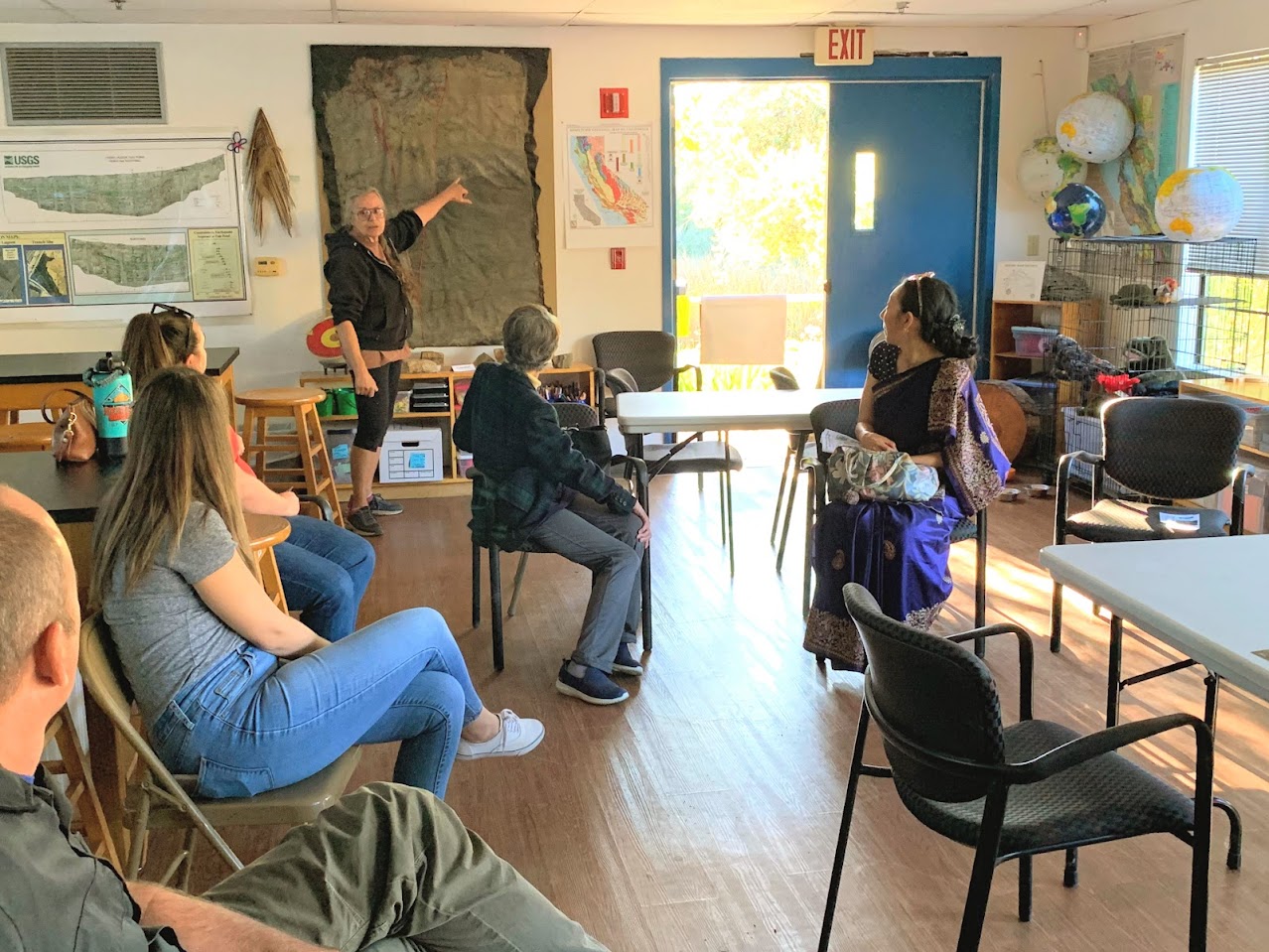
Dr. Joyce Blueford talks about Fremont's climate past through its rich geographic history.
The session, “Introduction to Climate Literacy and Action,” included a deep dive into Fremont's climate history and an exploration of Tule Ponds, both led by Dr. Joyce Blueford, Board President of Fremont’s Math/Science Nucleus. Rachel DiFranco, the City of Fremont's Sustainability Manager, also presented an overview of the City's Climate Action Plan and how to support students and their families to reduce climate impacts.
The local focus in the session is an important element of climate education, particularly as these topics are introduced to our youngest learners.
“Connecting to local and connecting to nature are both going to be really important strategies for helping kids navigate all the climate issues,” said Nate Ivy, an Instructional Coach in C&I and lead developer of the EEPD sessions. “If we start with polar bears and ice caps and CO2 and greenhouse gas, it gets abstract and scary really fast.”
Tailoring climate instruction to be age-appropriate is a strategy teachers can gain in the EEPD sessions, and is addressed throughout C&I’s ongoing efforts to build climate literacy into instruction across grade levels.
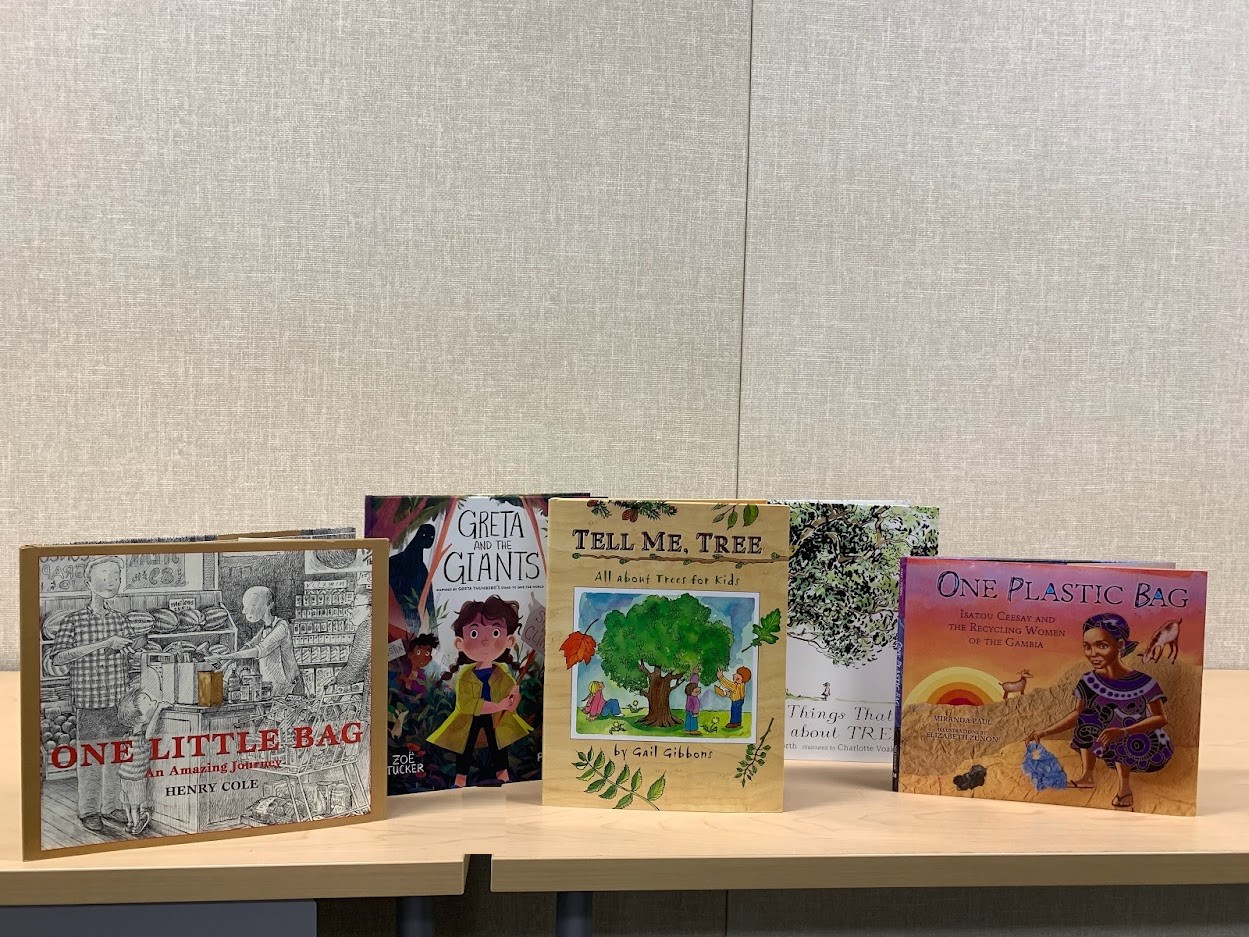
2022 Summer Academies reading resources with environmental themes, including “zero waste.”
During the 2022 Summer Academies, C&I staff integrated environmental themes as they developed the English language arts and math curriculum. Books, activities and instruction on the theme of “zero waste” were used throughout the program. Grade bands focused on different topics, such as how and why to conserve water for younger students, and the impacts of fast fashion and choices around consumption for older students.
“The connection to nature and having an action orientation is really important when you do climate education,” said Ivy. “Start with connecting to your place, start with kids having agency and responsibility around the environment.”
FUSD teachers can sign up for future EEPD sessions in Frontline; upcoming opportunities include a tour of the Fremont Transfer Station, where attendees can see what happens when we throw something "away" and learn about educational programs and support available from local partners.
More Eco-Friendly news is posted on our website.
